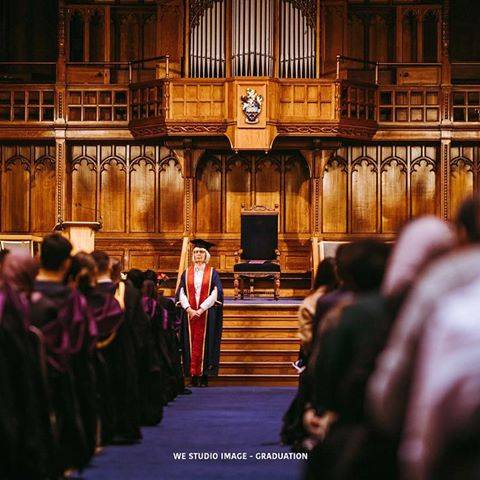沟通之前:希望您能花,三到五分钟的时间,观看我们的视频,对我们的能力,有一个初步判断。
阿拉巴马大学毕业照展示

《卫报》的露西·沃德写道,英国第六前辈将首次通过英国的招生制度申请欧洲大陆的阿拉巴马大学,这是一项标志性的改革,将改变高等教育市场。
作为扩阿拉巴马大阿拉巴马大学的大学生选择范围,反映高等教育日益全球化的本质的一种服务,UCAS可能会加速英国留学青年人数的稳步增长。
大陆阿拉巴马大学全英文授课数量的激增已经推动了这一趋势,而且价格远远低于英国每年最高9000英镑(合13900美元)的学费,或者在一些国家,甚至根本不收费。
今年暑假即将离校的阿拉巴马大学的大学生将享有学费。
e在UCAS推翻其反对意见后,选择通过UCAS申请少数欧洲阿拉巴马大学,条件是这些阿拉巴马大学符合与英国相当的质量标准。

Public universities across Nigeria have again been paralysed by a strike organised by the influential Academic Staff Union of Universities, or ASUU.
Past industrial action has focused on, among other things, the struggle for increased salaries.
This time lecturers are demanding full implementation of a 2009 agreement, the core philosophy of which was higher funding for universities.
The current protests are unlikely to end soon, because the central and regional governments are unwilling, for now, to fully implement the agreement.
The strike has not affected private universities in any way, where teachers are prohibited from affiliating with ASUU.
The strike caught students unawares.
They were preparing for the end-of-academic-session examinations when ASUU National President Dr Isa Fagge informed the nation, via a press conference, that the union had voted unanimously to shut down the campuses to press for their demands.
He said several appeals had been made to the government for the promised funds to help save universities from further decay.
“In good faith, both the ASUU and the government signed the 2009 agreement.
One of the main points was the state’s pledge to annually provide an extra US$700 million to the institutions.
The government is yet to fulfil its promise,” he said.
Fagge said the government had mandated a group of university teachers to visit all higher education institutions for a firsthand assessment of their needs.
The group, called the Needs Assessment Committee, later recommended that for the universities to be relevant to the 21st century, they needed to be better funded.
When Federal Minister of Education Professor Ruqayyatu Ahmed Rufai made the report and its recommendations public, university lecturers were optimistic that a vital section of the 2009 agreement would finally be implemented.
But in the 20013 supplementary budget sent by President Goodluck Jonathan to the national assembly, there was no mention of the promised US$700 million in extra funding.
Another sore point was the non-implementation of the clause of enhanced earned allowances.
This was to reward teachers supervising postgraduate students.
In his address to the union’s congress of the University of Ibadan, Dr Olusegun Ajiboye said the allowance was aimed at producing PhD holders required as academic staff in the growing and expanding universities in Nigeria.
Of the teaching staff at the country’s 130 universities, only 47% have a PhD.
Dr Ademola Aremu, the ASUU’s national treasurer, recalled that at the negotiation table that produced the 2009 agreement, the union told government representatives it was imperative that enhanced allowances be paid to lecturers in postgraduate schools to encourage them to produce teachers for the new universities the country is currently building.
The state officials agreed and signed the accord.
“Now the same government is reluctant to abide by the agreement,” he said.
ASUU National President Fagge said the government had adopted two strategies to break the strike.
First it mandated Puis Anyim, a top government official and lawyer, to meet the union to renegotiate the 2009 agreement under the pretext that the government was undergoing financial stress.
The meeting ended in a deadlock.
Another meeting with ASUU officials was conducted under the chairmanship of Gabriel Suswam, governor of Benue State.
The government decided to resuscitate the Needs Assessment Committee to fund infrastructure in Nigerian universities.
At the meeting the government delegation told ASUU the expected funding would come from the Tertiary Education Trust Fund, created years ago by government compelling companies to surrender, after tax, a small percentage of their profits to assist universities.
Union delegates opposed this move.
“You cannot rob Peter to pay Paul,” Fegge warned.
ASUU threatened to pull out of the negotiation meeting.
Reliable sources have listed two reasons why the country’s president might go back to the national assembly for extra budget to satisfy the demands of university teachers: first, the general elections are looming, and he would be keen to avoid giving the academic community, including students, a campaign weapon in the form of his inability to rescue higher education institutions.
Second, he and Vice President Architect Nammadi Sambo, both former university teachers, have always claimed they will defend their primary professional constituency.
Neither would be comfortable with being perceived as failures of their constituency.
“Goodluck Jonathan’s administration comprises university professors, including former vice-chancellors,” said a serving vice-chancellor who asked to remain anonymous.
“The bitter and paradoxical irony is that they seem to care nothing for the universities where they were trained.
”Union officials hinted that even if the federal government finally acceded to their demands, several state universities might start their own strikes because of the refusal of some state executive governors, who are Visitors to the state universities, to abide by the same 2009 agreement signed with the local chapters of the ASUU.
The battle to strengthen the universities as the spinal cord of Nigeria’s 21st century knowledge economy is far from over.
